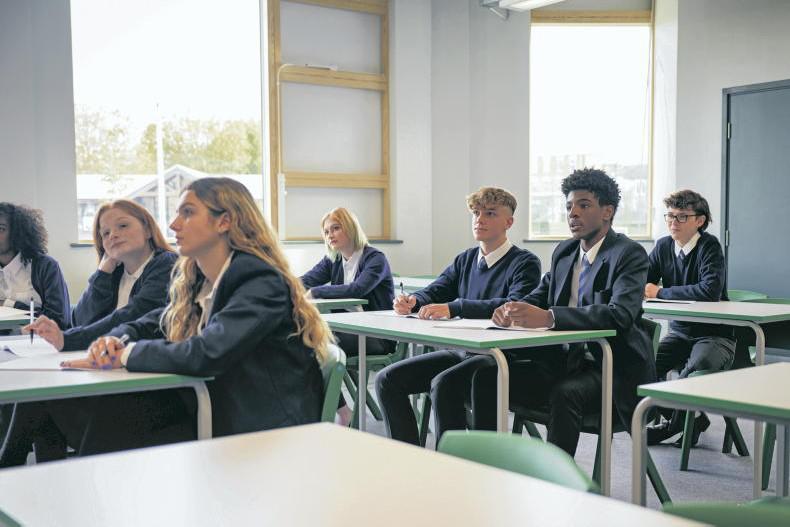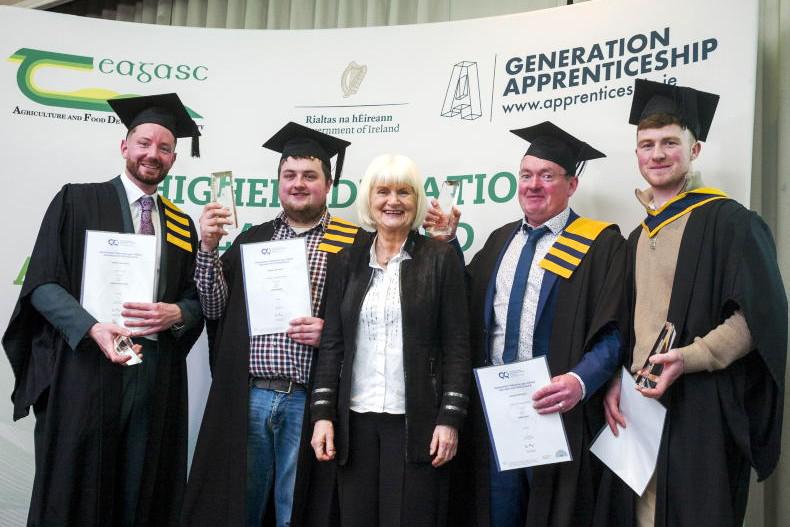Deciding if your child does transition year (TY) might be out of your control; often it depends on whether the school they attend has a compulsory TY programme or if it is optional.
Even if it is optional, sometimes it involves an application process and interview, meaning some students who want to do TY still miss out on the opportunity to participate.
In the 2023/2024 school year, almost 80% of students in Ireland participated in TY, which equates to 60,000 students. This means that a minority of students are going straight into fifth year after they complete the Junior Cert.
Deciding whether or not to do TY can be a big decision for students and their parents. In fact, often it needs consideration before secondary school starts.
This is because you need to factor in if it is optional or compulsory, how much it is going to cost, and if the subjects and extra topics covered are of interest. As a result of the different trips and bonding experiences, the average cost of the TY programme in Ireland can vary, but the fee generally ranges from €350 to €500.
Benefits to students
For students who know what they want to do after school and are focused on getting through the Leaving Cert cycle, TY might not be the best option for them and they can benefit from going straight into fifth year. For others, TY can be a valuable experience, depending on their personality, interests, and future goals.
By making students more self-directed learners through the development of general, technical and academic skills, TY programmes enable them to become more mature. It also provides students with the chance to take part in work experience, which can help them understand what career pathway they might want to pursue beyond the Leaving Cert.
Déaglán Ó Laoire, principal of Coláiste Raithín in Co Wicklow, where TY is compulsory, is in favour of the programme because over the years he has seen it give students that extra year of maturity which makes them more ready for what comes ahead with the Leaving Cert.
Being amenable to new learnings and experiences, that’s how students will get the most out of their transition year experience
“As a standalone, I think TY is hugely beneficial for them because they get experiences that they wouldn’t normally have in school; for example, there’s a wide range of guest speakers and a different range of subjects,” he explains.
Along with this, Déaglán finds there is a bonding element that happens within the year group as it’s more conducive to building a team spirit, which can benefit widely going into the Leaving Cert. Ultimately, what a student puts into the programme is what they will get out of it.
“If a student goes in with a positive attitude, they’re going to give it their best shot. Being amenable to new learnings and experiences, that’s how students will get the most out of their transition year experience.
"But if you’re a closed book, closed mindset person, and throw your eyes up when someone comes in to give a talk, then you’re going to be the same person at the end of the year ,” says Déaglán.
Programme structure
There is more scope for movement and flexibility within the programme and being able to implement a wider range of subjects.
Each school devises its own TY programme. The teaching staff draws up a programme in the light of the transition year guidelines and the resource material published by the Department of Education and Science. They also consider students’ needs, parents’ views, employers and the wider interests of the local community.
“I think parents have a bit of a misconception at times and think that there’s no academics in TY, and that’s not the case either. There are still the core subjects. We expect them to be doing well academically, and while there’s not a huge emphasis on it, that element is still expected,” explains Déaglán.
Since schools have the freedom to design their own programmes, the experience can vary a lot for students. Some focus more on academic preparation, while others emphasise hands-on learning, travel, or creative projects. It’s worth checking out what your child’s school offers to see if it’s a good fit for them and if they will enjoy the different topics covered.
Deciding what’s right for you
Although TY can be a positive experience for many, some students are better off going straight into fifth year.
This was the case for Joe Symes from Co Wexford, who is just about to finish first year at University of Limerick where he is studying graphics and construction technology. He says he decided to skip TY and finish school a year earlier.
“I didn’t have any plans to do TY. I knew what job and college course I wanted to do, so I felt there was no need for me to do the extra year.
“I wouldn’t say my friends affected my decision at all. The way it works in my school (Ramsgrange Community School) was that some did TY, and some didn’t, so your real friends are still the ones you hung out with from first year.
“The advice I would give to anyone trying to decide is to think about what you want yourself. If you want to go on the work experience and try new things, then definitely go for it.
"But if you have your head set and know where you’re going to college, you might as well plough on. A lot of people said that coming from TY back to normal study was very hard as it is a completely different type of learning.”
Ultimately, it is a very individual decision that parents should sit down and discuss with their child. Look at the programme on offer in the school they are attending and what your child wants to get out of it.
Would they benefit from the extra team work and trips or are they mature enough to enter into fifth year straight away? The right answer depends completely on the person.
Read more
‘I think we could do more’ on vet course places - Minister Lawless
Young Stock Podcast: dealing with grief and returning to farming
Deciding if your child does transition year (TY) might be out of your control; often it depends on whether the school they attend has a compulsory TY programme or if it is optional.
Even if it is optional, sometimes it involves an application process and interview, meaning some students who want to do TY still miss out on the opportunity to participate.
In the 2023/2024 school year, almost 80% of students in Ireland participated in TY, which equates to 60,000 students. This means that a minority of students are going straight into fifth year after they complete the Junior Cert.
Deciding whether or not to do TY can be a big decision for students and their parents. In fact, often it needs consideration before secondary school starts.
This is because you need to factor in if it is optional or compulsory, how much it is going to cost, and if the subjects and extra topics covered are of interest. As a result of the different trips and bonding experiences, the average cost of the TY programme in Ireland can vary, but the fee generally ranges from €350 to €500.
Benefits to students
For students who know what they want to do after school and are focused on getting through the Leaving Cert cycle, TY might not be the best option for them and they can benefit from going straight into fifth year. For others, TY can be a valuable experience, depending on their personality, interests, and future goals.
By making students more self-directed learners through the development of general, technical and academic skills, TY programmes enable them to become more mature. It also provides students with the chance to take part in work experience, which can help them understand what career pathway they might want to pursue beyond the Leaving Cert.
Déaglán Ó Laoire, principal of Coláiste Raithín in Co Wicklow, where TY is compulsory, is in favour of the programme because over the years he has seen it give students that extra year of maturity which makes them more ready for what comes ahead with the Leaving Cert.
Being amenable to new learnings and experiences, that’s how students will get the most out of their transition year experience
“As a standalone, I think TY is hugely beneficial for them because they get experiences that they wouldn’t normally have in school; for example, there’s a wide range of guest speakers and a different range of subjects,” he explains.
Along with this, Déaglán finds there is a bonding element that happens within the year group as it’s more conducive to building a team spirit, which can benefit widely going into the Leaving Cert. Ultimately, what a student puts into the programme is what they will get out of it.
“If a student goes in with a positive attitude, they’re going to give it their best shot. Being amenable to new learnings and experiences, that’s how students will get the most out of their transition year experience.
"But if you’re a closed book, closed mindset person, and throw your eyes up when someone comes in to give a talk, then you’re going to be the same person at the end of the year ,” says Déaglán.
Programme structure
There is more scope for movement and flexibility within the programme and being able to implement a wider range of subjects.
Each school devises its own TY programme. The teaching staff draws up a programme in the light of the transition year guidelines and the resource material published by the Department of Education and Science. They also consider students’ needs, parents’ views, employers and the wider interests of the local community.
“I think parents have a bit of a misconception at times and think that there’s no academics in TY, and that’s not the case either. There are still the core subjects. We expect them to be doing well academically, and while there’s not a huge emphasis on it, that element is still expected,” explains Déaglán.
Since schools have the freedom to design their own programmes, the experience can vary a lot for students. Some focus more on academic preparation, while others emphasise hands-on learning, travel, or creative projects. It’s worth checking out what your child’s school offers to see if it’s a good fit for them and if they will enjoy the different topics covered.
Deciding what’s right for you
Although TY can be a positive experience for many, some students are better off going straight into fifth year.
This was the case for Joe Symes from Co Wexford, who is just about to finish first year at University of Limerick where he is studying graphics and construction technology. He says he decided to skip TY and finish school a year earlier.
“I didn’t have any plans to do TY. I knew what job and college course I wanted to do, so I felt there was no need for me to do the extra year.
“I wouldn’t say my friends affected my decision at all. The way it works in my school (Ramsgrange Community School) was that some did TY, and some didn’t, so your real friends are still the ones you hung out with from first year.
“The advice I would give to anyone trying to decide is to think about what you want yourself. If you want to go on the work experience and try new things, then definitely go for it.
"But if you have your head set and know where you’re going to college, you might as well plough on. A lot of people said that coming from TY back to normal study was very hard as it is a completely different type of learning.”
Ultimately, it is a very individual decision that parents should sit down and discuss with their child. Look at the programme on offer in the school they are attending and what your child wants to get out of it.
Would they benefit from the extra team work and trips or are they mature enough to enter into fifth year straight away? The right answer depends completely on the person.
Read more
‘I think we could do more’ on vet course places - Minister Lawless
Young Stock Podcast: dealing with grief and returning to farming









SHARING OPTIONS